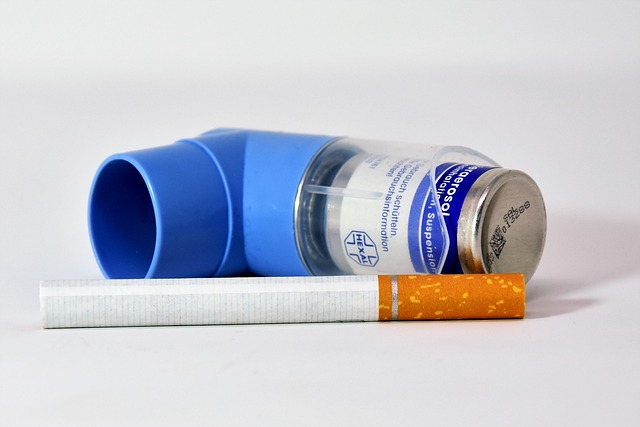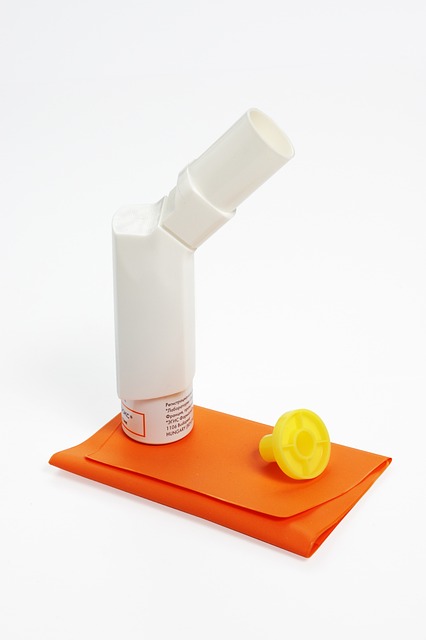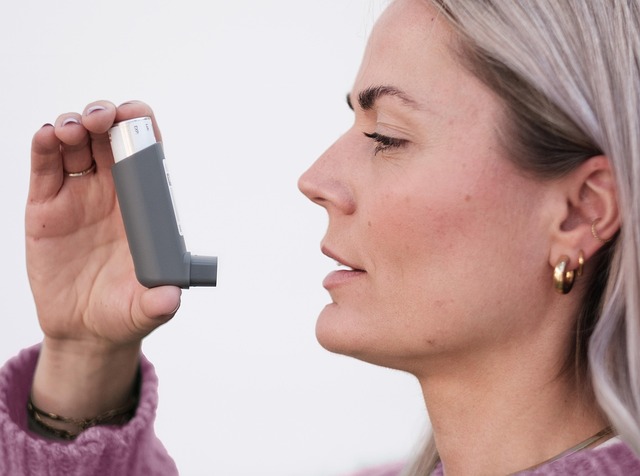TL;DR: Mold exposure can cause a wide range of symptoms, from mild like sneezing and congestion to severe issues like asthma attacks, chronic coughing, and even neurological disorders. Individuals with allergies or pre-existing conditions are at higher risk for health complications, including memory loss, fatigue, and joint pain. Recognizing symptoms such as respiratory distress, fatigue, headaches, and cognitive impairment is crucial, especially for those suspecting toxic mold sickness. Prompt action involving professional mold removal is essential to mitigate these risks and create a healthier living environment.
“Mold and mildew, often unseen, can have a profound impact on our overall health. This insidious duo thrives in damp environments, lurking in homes and buildings unnoticed. From respiratory distress to allergic reactions and even cognitive issues, the effects of mold exposure are far-reaching. Understanding the symptoms, risks, and health effects associated with mold is crucial for recognizing and mitigating its potential dangers. This comprehensive guide delves into the various ways mold can impact our well-being, shedding light on the importance of a healthy living environment.”
- Mold Exposure Symptoms: Recognizing the Signs of Inhalation
- Mold Allergy Risks: Understanding Sensitivities and Immune Reactions
- Health Effects of Mold: A Comprehensive Overview of Systemic Impacts
- Mold-Related Respiratory Issues: Asthma, Allergies, and Beyond
- Mold Poisoning Signs: Identifying Toxic Mold Sickness Symptoms
Mold Exposure Symptoms: Recognizing the Signs of Inhalation

Many people experience mold exposure symptoms without even realizing it. Common indicators include sneezing, runny or blocked nose, coughing, and itchy eyes, skin, or throat. These reactions are often related to a mold allergy, as the immune system mistakenly identifies harmless fungal spores as threats. Prolonged or severe mold exposure can lead to more serious health effects of mold, especially in individuals with pre-existing respiratory conditions or compromised immune systems.
In some cases, toxic mold sickness may develop, characterized by a range of symptoms affecting multiple body systems. This can include respiratory issues like asthma attacks, chronic coughing, and difficulty breathing, as well as non-respiratory symptoms such as headaches, fatigue, memory problems, and even neurological disorders. Recognizing the signs of mold exposure is crucial in mitigating health risks associated with this environmental hazard.
Mold Allergy Risks: Understanding Sensitivities and Immune Reactions

Mold exposure can trigger a range of symptoms in sensitive individuals, with mold allergy risks being a significant concern for many. Understanding these sensitivities and immune reactions is crucial when considering the health effects of mold. Those with existing respiratory conditions like asthma or allergies are particularly vulnerable to developing mold-related respiratory issues. Even healthy individuals might experience mild symptoms such as sneezing, runny nose, or itchy eyes after prolonged exposure to high levels of mold spores.
However, for those with compromised immune systems or underlying health conditions, the story can be quite different. Prolonged exposure to toxic mold can lead to more severe reactions, including signs of mold poisoning like fatigue, headache, and cognitive issues. The symptoms of toxic mold sickness vary widely and can mimic those of other illnesses, making diagnosis challenging. Recognizing the potential for these health effects is vital in mitigating the risks associated with mold exposure.
Health Effects of Mold: A Comprehensive Overview of Systemic Impacts

Mold exposure can have a wide range of symptoms and health effects on individuals, varying from mild to severe. Common mold exposure symptoms include coughing, wheezing, nasal congestion, eye irritation, skin rash, and headaches. These symptoms are often misattributed to other causes, making it crucial to consider mold as a potential culprit, especially in environments with high mold levels. Prolonged or intense mold exposure can exacerbate existing respiratory conditions like asthma and lead to chronic sinusitis, bronchitis, and even acute respiratory infections.
Beyond respiratory issues, mold allergy risks are significant. Mold spores can trigger allergic reactions, leading to symptoms such as sneezing, itching eyes, runny nose, and in severe cases, anaphylaxis. Individuals with compromised immune systems or underlying health conditions are particularly vulnerable to the health effects of mold, which can include memory loss, fatigue, joint pain, and cognitive impairment. It is important to recognize that mold poisoning signs may manifest beyond respiratory symptoms, encompassing a range of systemic issues that warrant professional medical attention upon suspicion of mold-related illness, commonly known as toxic mold sickness.
Mold-Related Respiratory Issues: Asthma, Allergies, and Beyond

Mold-related respiratory issues are a significant concern for individuals exposed to high levels of mold or those with underlying allergies and asthma. Mold exposure symptoms can range from mild to severe, depending on the type of mold and the duration and intensity of exposure. Those with mold allergy risks may experience coughing, wheezing, shortness of breath, and chest tightness. The health effects of mold can also include sinus congestion, nasal discharge, and eye irritation.
Prolonged or extensive mold exposure may lead to more serious mold-related respiratory issues. Signs of mold poisoning, though rare, can include headaches, fatigue, memory problems, and neurological symptoms. It’s crucial to address these issues promptly, as toxic mold sickness can have lasting impacts on one’s overall health and well-being.
Mold Poisoning Signs: Identifying Toxic Mold Sickness Symptoms

Many people experience mold-related health issues due to prolonged exposure, often unnoticed, to hidden molds in their living spaces. Mold poisoning signs can manifest as a range of symptoms, from mild to severe, affecting various systems in the body. Individuals with mold allergy risks are particularly vulnerable and may suffer from chronic health effects of mold, including respiratory problems like coughing, wheezing, and difficulty breathing.
Recognizing mold related respiratory issues is crucial, as they can lead to more serious complications over time. Toxic mold sickness symptoms include fatigue, headaches, dizziness, skin rashes, and even cognitive impairments. If you suspect any mold exposure symptoms, it’s important to address them promptly. Professional mold removal and improving indoor air quality are essential steps towards creating a healthier living environment.
